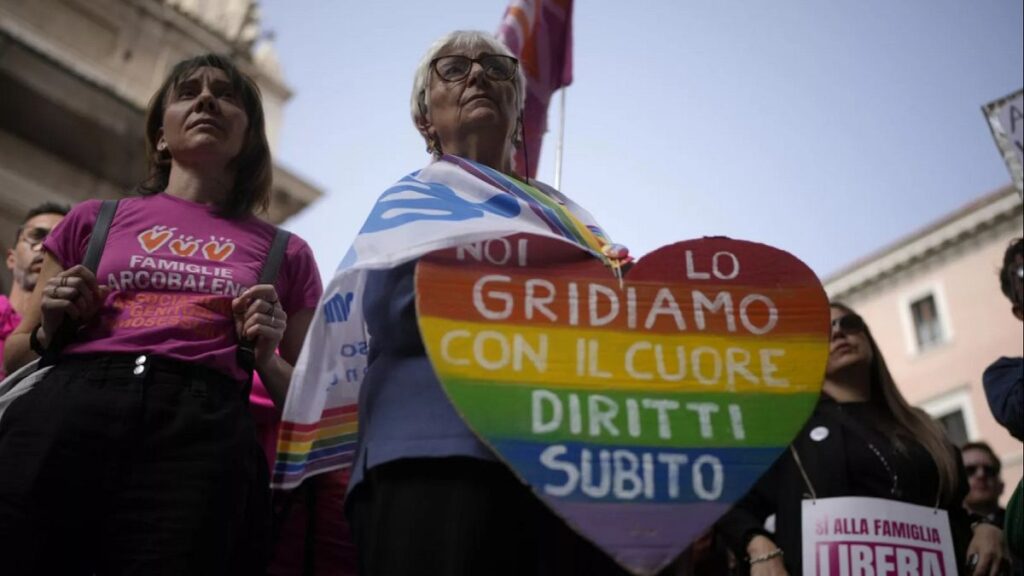Published on
Several social media posts shared over recent weeks — some racking up millions of views and thousands of likes and shares — allege that Italy has just introduced a law aimed at banning same-sex couples from having children via surrogacy.
Many of the posts contain words such as “Breaking” and a siren emoji to suggest that the measure has just been introduced, while others invite social media users to share whether they support it, prompting a slew of anti-LGBT responses.
The posts typically share generic, stock photos of Italian Prime Minister Giorgia Meloni and some sort of LGBT rainbow flag with a red cross or “banned” sign.
However, none of the posts provide any extra information or links to articles or government announcements, which is our first clue that all is not as it seems.
Italy has effectively banned LGBT people from having children through surrogacy, but not so recently: back in October, the country criminalised citizens who go abroad to have children via surrogacy. Critics argued this was discriminatory to same-sex couples as it shut down one of the last viable paths for them to become parents.
The measure extended a surrogacy ban that had already been in place in Italy since 2004. This prohibited the practice on Italian soil and introduced jail sentences of up to two years and fines of up to €1 million for any Italian seeking surrogacy in countries such as the United States or Canada, where it’s legal.
The ban and its extension apply equally to both heterosexual and same-sex couples, so it is incorrect to call it a ban on LGBT surrogacy specifically. However, critics argue it is discriminatory in practice as it disproportionately targets LGBT couples, who can’t get married or adopt children either.
Italy’s adoption law typically only allows married couples to adopt, and as the country only allows same-sex couples to enter into civil partnerships, they are excluded by default.
Nevertheless, Italy’s Constitutional Court ruled in May that two women can register as parents on a child’s birth certificate, affirming that parental rights can’t be limited to the biological mother.
The court ruled that it was unconstitutional for city registrars to deprive children born to same-sex parents of recognition by both the biological mother and the woman who consented to the medically assisted pregnancy of her partner and assumed parental responsibilities.
LGBT advocates celebrated the ruling as a step in the right direction. But ultimately, it didn’t change the surrogacy laws, with strong restrictions still in place, and naturally, it does not cover male same-sex couples.
Italy is one of the only European Union countries that bans surrogacy abroad, but many others ban the practice at home, including France, Germany and Spain.
Conversely, there are provisions for it in the likes of Portugal, Greece and Belgium.
Read the full article here
